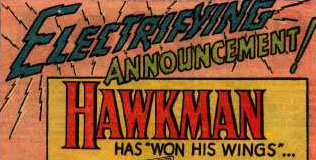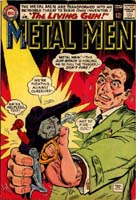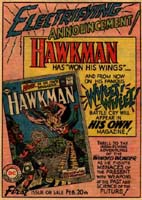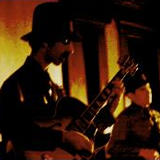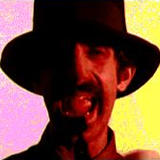8. Metal Man Has Won His Wings
FZ, The Old Masters Box One (1985) booklet
In our spare time we made what we thought were 'rock & roll records.' In this example, Vliet was 'singing' in the hallway outside the studio (our vocal booth) while the band played in the other room.
The lyrics were derived from a comic book pinned to a bulletin board near the door. The musicians include F.Z. on guitar, Vic Morthenson [Mortensen] on drums, and a bass player from a surf group (identity unknown).
- See notes for "Tiger Roach" on The Lost Episodes (1996).
- See also notes about The Soots.
The Lyrics
Biffy The Elephan Shrew, "Metal Man Has Won His Wings: The Source"
The following images are the cover and a full-page ad from the DC comic Metal Men #7, April-May 1964. This book would have been on sale in early 1964; its on-sale date was probably February 20, the same as that of the Hawkman comic advertised (which also shows a cover date of May). This is clearly the source of the lyrics of "Metal Man Has Won His Wings." (Note that, contrary to the official title, it is actually Hawkman, in both the song and the original advertisement, who has "won his wings.") This proves that "Metal Man Has Won His Wings" must actually date from February 1964 at the very earliest.
Wheet! Wheet!

Metal Men!
![]()
The Living Gun!
![]()
Hawkman,
'Lectro-flyer,
Announcement,
Has won his wings!
